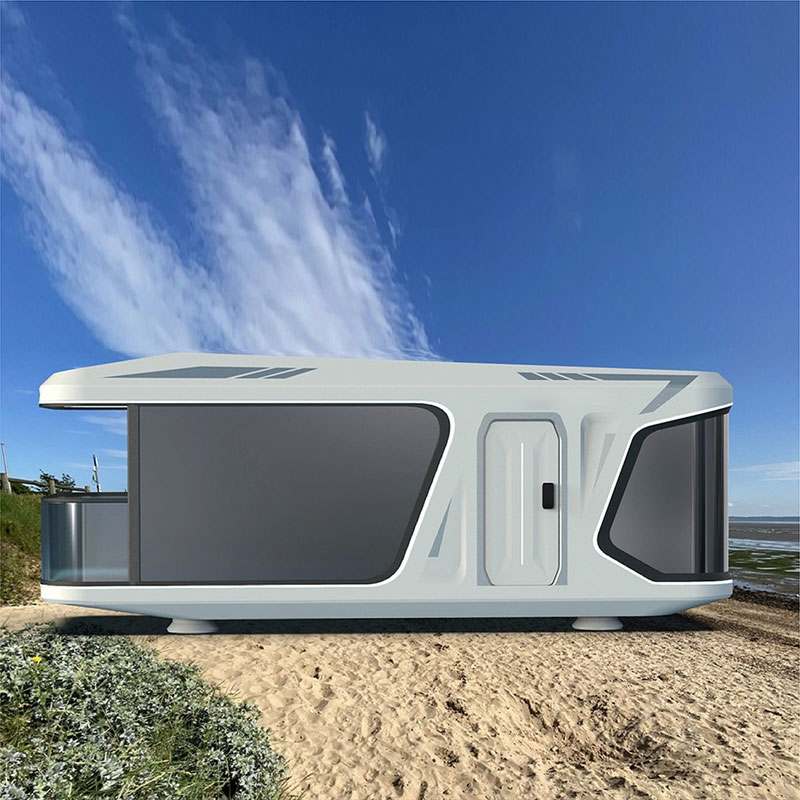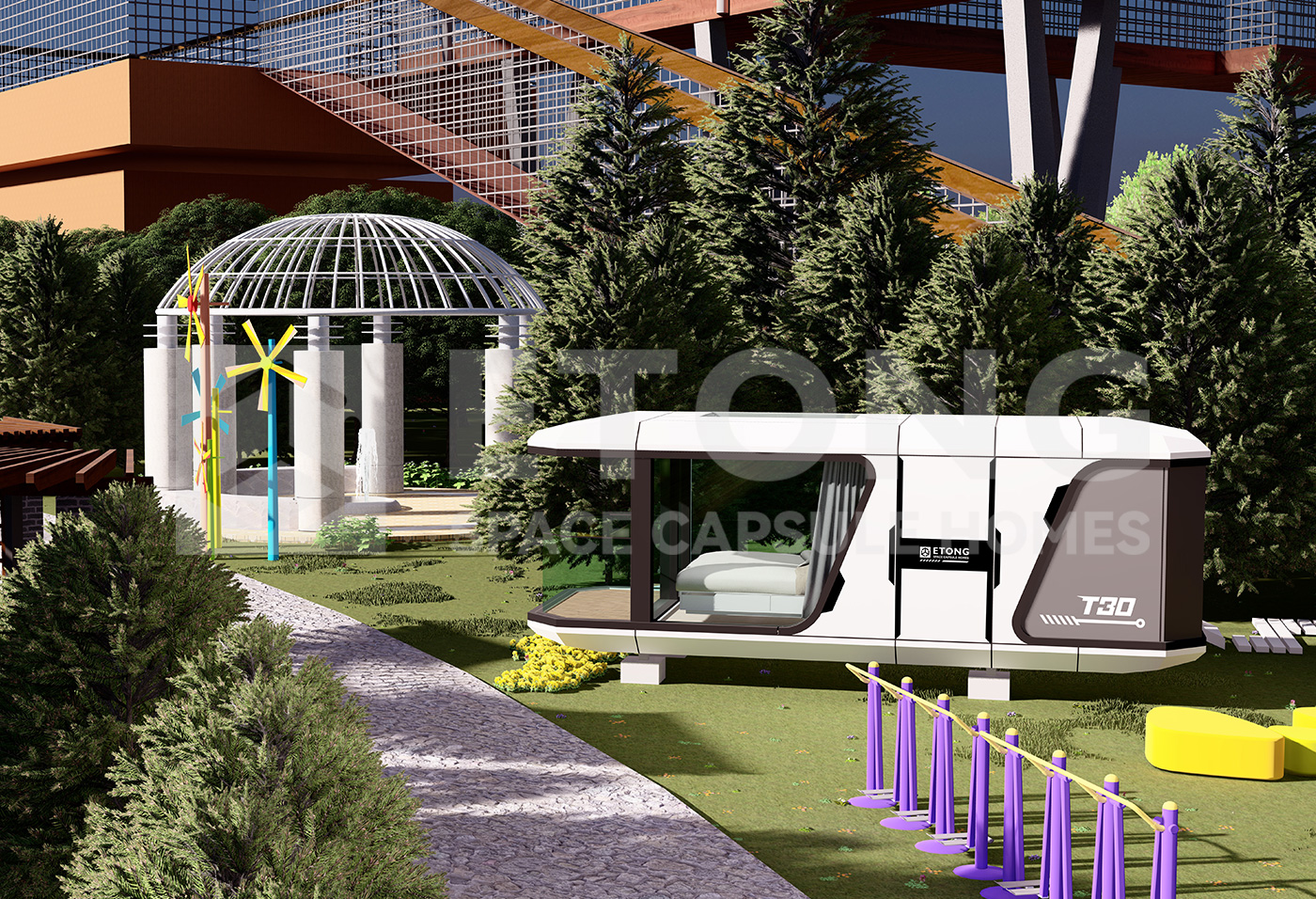Pod Studio: A Modern and Efficient Space for Work and Living
Wiki Article
Why Modular Houses Are the Future of Lasting Living
Modular homes are increasingly identified as a pivotal solution for lasting living, offering a mix of effectiveness, cost-effectiveness, and ecological advantages. The flexibility of modular layouts permits for the combination of sustainable modern technologies and products customized to private needs.Environmental Advantages of Modular Houses
The ecological benefits of modular homes represent a significant step towards lasting living. These homes are created in controlled factory setups, which dramatically reduces waste created during the building process. By optimizing products and minimizing excess, modular construction contributes to a much more effective use resources contrasted to typical structure techniques.Additionally, modular homes are commonly designed with energy efficiency in mind. Lots of include advanced insulation strategies, energy-efficient windows, and sustainable materials, adding to reduced energy usage. This can result in lowered greenhouse gas exhausts over the lifespan of the home, improving its general environmental account.
The capability to transportation and assemble modular parts on-site likewise reduces the carbon footprint connected with construction logistics. Furthermore, many modular homes are built to be easily upgradeable and versatile, enabling property owners to execute lasting modern technologies, such as photovoltaic panels and energy-efficient furnace, in time.
Inevitably, the environmental advantages of modular homes not just advertise sustainable living however also motivate a more accountable strategy to real estate advancement, aligning with global efforts to fight climate modification and maintain natural deposits for future generations.
Cost-Effectiveness and Cost
Structure a home typically stands for among the largest economic investments individuals make in their life time, and modular homes supply a compelling service for those seeking cost-effectiveness and price. One of the main advantages of modular homes is their lower building and construction costs compared to conventional site-built homes. The streamlined manufacturing procedure permits substantial cost savings on labor and products, which equates to decrease rates for customers.Furthermore, modular homes normally have shorter building and construction timelines. This not only reduces expenses connected to funding and insurance policy yet additionally alleviates the threats connected with inflation and fluctuating market problems. Many purchasers locate that modular homes can be personalized to fit their budgets without giving up high quality or layout.
In addition, energy performance is typically built into the style of modular homes, leading to minimized utility expenses with time. Many makers prioritize sustainable materials and methods, even more improving the long-term financial practicality of these homes. On the whole, the combination of initial expense financial savings, fast building and construction, and ongoing energy efficiency makes modular homes an attractive option for those looking to spend in sustainable living without breaking the bank.
Efficiency in Building
Modular homes not only offer economic benefits yet also stand out in building and construction effectiveness. The modular building process includes the simultaneous construction of modules in a factory setting while site preparation happens concurrently. This identical approach substantially minimizes the overall timeline from fertilization to conclusion, commonly reducing building time by up to half contrasted to conventional methods.Moreover, factory-controlled settings enhance high quality assurance. By making use of accuracy manufacturing methods, modular homes are constructed to exact specs, lessening waste and mistakes. This consistency not just leads to a higher top quality product yet also adds to lasting practices by minimizing product waste throughout construction.
Additionally, making use of contemporary technology and automation in the production procedure enables quicker setting up and lowered labor expenses. As soon as the modules are transported to the website, they can be effectively put together, even more quickening the timeline. This streamlined procedure is not just valuable for home builders however also decreases interruptions to the surrounding atmosphere during building and construction.
Personalization and Design Adaptability
An impressive array of modification choices differentiates modular homes, permitting property owners to customize their space to satisfy certain demands and choices. This style adaptability is a characteristic of modular building and construction, making it possible for customers to select every little thing from floor strategies and area formats to coatings and fixtures. Unlike traditional homes, modular layouts facilitate a joint strategy where contractors and architects work carefully with house owners, ensuring that each element aligns with aesthetic needs and private way of livings.In addition, modular homes can be conveniently reconfigured or broadened, suiting transforming family characteristics or evolving personal preferences. This adaptability not just improves the home's capability yet additionally contributes to long-lasting sustainability, as home owners can change their spaces instead than seek brand-new real estate options.

Future Patterns in Sustainable Real Estate
Arising trends in lasting housing are reshaping the landscape of household building and construction, highlighting green techniques and cutting-edge modern technologies. One significant fad is the assimilation of wise home technology, which improves energy effectiveness via automated systems that optimize and keep an eye on power intake. This not just minimizes utility prices yet likewise adds to a lower carbon impact.Additionally, using sustainable products is becoming significantly typical. Builders are going with recycled, in your area sourced, or quickly sustainable materials, which reduce environmental effect and assistance local economic climates. Modular homes are getting appeal for their decreased waste during construction and their versatility to different surfaces and environments.
Another fad is the incorporation of green roofing systems and living walls, which boost air high quality and offer natural insulation. These attributes also advertise biodiversity in city locations.
Verdict
In verdict, modular homes become a critical service for lasting living, providing capsule houses substantial ecological advantages through decreased waste and energy performance. Their cost-effectiveness and affordability deal with the expanding housing demands in city areas, while effective building and construction processes boost general performance. The fundamental personalization and design flexibility provide to varied preferences and requirements. As fads in lasting housing advance, modular homes are positioned to play a critical duty in promoting environmentally friendly living practices for future generations.Structure a home typically represents one of the biggest economic investments people make in their lifetime, and modular homes provide an engaging solution for those looking for cost-effectiveness and cost. One of the key advantages of modular homes is their lower construction expenses compared to conventional site-built homes. Overall, the combination of first price savings, fast building and construction, and recurring power performance makes modular homes an appealing alternative for those looking to invest in lasting living without damaging the bank.
Inevitably, the customization and design adaptability used by modular homes make sure that they are not simply frameworks, however individualized shelters that show the unique identifications of their passengers while promoting lasting living methods.

Report this wiki page